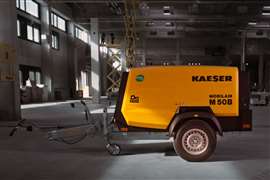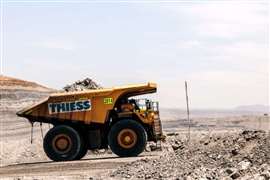US construction material costs fall
28 May 2015
US construction material costs fell again in May, according to economic forecaster IHS and the Procurement Executives Group (PEG). The IHS PEG Engineering and Construction Cost Index (ECCI) stood at 47.9 points in May. This was up from April’s figure, but below the 50-point mark which separates rising and falling costs.
IHS said prices for five of 12 individual components of the index fell in May, with the steepest declines seen in carbon steel pipes and fabricated structural steel. However, six components registered higher pricing, led by ready-mixed concrete. The cost of copper wire & cable was also up for the first time since September.
IHS senior manager Jason Kaplan said, “Steel prices are feeling the last of the pull down from lower input costs. Iron ore prices have rebounded over the past few weeks, so this effect will phase out shortly. That said, steel plate prices continue to be depressed by a combination of low demand – caused by a drop off in oil- and gas- related investment – and strong supply, especially from plate being imported from Asia.”
IHS research director John Mothersole added, “The recent push in copper prices to around US$ 6,400 per tonne is linked to the Dollar’s recent retreat and short covering. We do not believe this rally can be sustained on fundamentals and hence we do not see a breakout in prices.”
IHS added that the index figure for price expectations rose to 50.3 in May, from a low of 44.6 in April, which implies prices are set to rise. However, the result was so marginal, and split between expected rises and falls for different components, that this could not be called strong sentiment.







